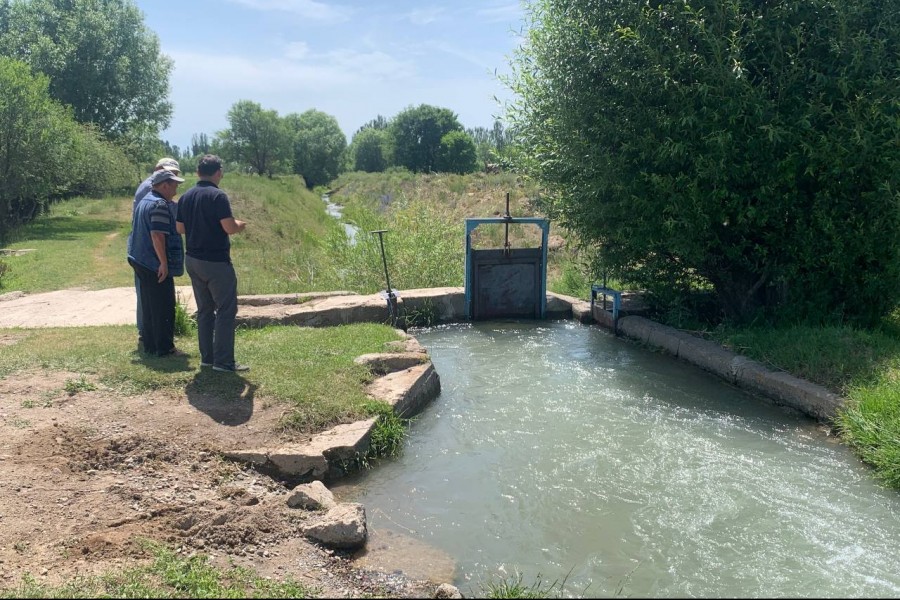
The reasons for the shortage of the resource are human-induced factors - inadequate management and irrational use of water, as well as the impact of climate change, which due to unstable weather conditions leads to uneven distribution of water in the seasons. In addition, the water management system has changed. Today, instead of one consumer represented by a state or collective farm, tens and thousands of water users depend on the common irrigation system. This complicates the operation of the network, equitable water distribution and leads to additional losses. The situation is aggravated by the outdated state of the irrigation network. Replacement of infrastructure and modernization of the system are important tasks to ensure efficient use of water resources and sustainable water supply in the future.
The project aim was to improve water resources management in the country through strengthening the institutional base of regional water user’s associations (WUAs). This involved enhancing their capacities and fostering improving interaction between WUAs and users of their services. The project comprised key components, including the assessment of WUA activities, the establishment of an automated information system on water distribution, and initiatives aimed at raising public awareness about water management issues.
RESEARCH
The assessment of the activities of Water User Associations (WUAs) revealed both their strengths and weaknesses, and identified specific gaps. Addressing these gaps is crucial for making competent and informed decisions to enhance water resources management. The study involved approximately 780 farmers (water users) and 30 representatives from WUAs, District Support Offices (DSOs), and District Water Management Offices (DWMOs). The research was conducted through in-depth interviews and offline surveys, with these participants emerging as key players in the process of water resources management at the local level.
The analysis of respondents' reactions to the proposed questions revealed the following difficulties and challenges, which WUAs and users face: (1) lack of professional knowledge and experience of WUA staff in water resources management issues; (2) water scarcity and its irrational use; (3) lack of stable crop planning and non-compliance with irrigation norms; (4) outdated irrigation system.
The results of this study were used to develop further project activities, including an information system and an awareness raising campaign.
ELECTRONIC WUA
The information system of water distribution is a web resource. One of its main functions is to form an electronic queue for irrigation, taking into account the irrigation regime of agricultural crops, the capacity of irrigation networks and technical losses during water transportation.
To launch the system and form an electronic queue, a data bank of farmers, crop areas, irrigation rates, availability of internal irrigation networks - ditches, canals and their capacity is created on the web resource.
AWARENESS CAMPAIGN
Training activities on the sustainable development principles were conducted for local communities. This module, developed by the CAMP Alatoo PF, is an effective tool for raising awareness and utilization of natural resources.
Educational activities were conducted on the topics of “Basin Management”, “Soil and Water Conservation Technologies”, and “Conflict Management over Natural Resources”. Nearly 680 WUA members and training experts participated in 25 workshops.
12 out of 13 WUAs developed mini-projects on application of soil and water conservation technologies and received financial support, equipment and materials for realization of their ideas.